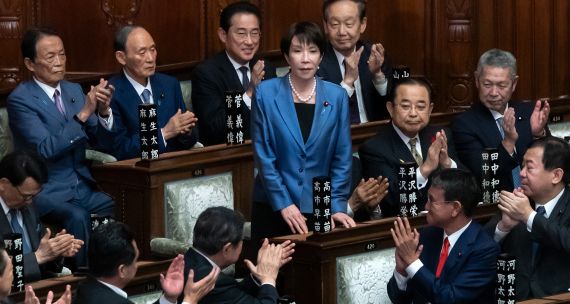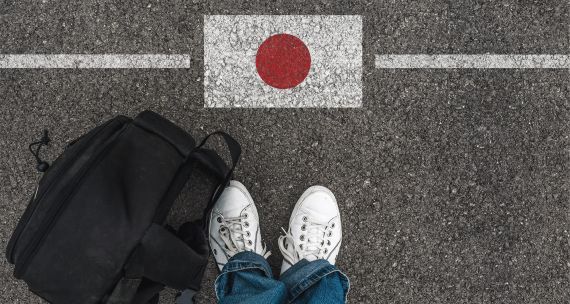Japanese Prime Minister Shinzo Abe is facing a difficult decision. As economic growth slows and sovereign debt mounts, the prime minister must decide whether to go ahead with a consumption tax increase that would take effect April 1, 2017. The tax rise, from eight per cent to ten per cent, was originally set for October 2015, but was delayed in light of weak economic data. Abe is facing pressure from finance ministry bureaucrats to raise the tax in order to deal with Japan’s enormous debt. However, key advisors are warning that an increase will stunt economic growth, and thus harm the progress made under Abenomics, the prime minister’s signature economic program designed to spark inflation and growth. With the credibility of Abe’s economic policies on the line, he must again judge whether the Japanese economy can handle the shock of a tax increase.
The Consumption Tax
In 2012, then -Prime Minister Yoshihiko Noda passed a law to increase Japan’s consumption tax from five per cent to eight per cent, and then eight per cent to ten per cent, by the end of 2015. The doubling of the tax was designed to address Japan’s enormous debt-to-GDP ratio, the highest in the OECD.
The first increase, in April 2014, pushed the Japanese economy into recession. Due to the unexpectedly harsh contraction, the prime minister began rethinking the second phase of the hike, set for October 2015. Facing pressure from advisors, and a deteriorating economic situation, Abe decided in November 2014 to delay the second hike.
The First Delay
In late 2014, Abe faced calls to delay the second hike in the consumption tax. With the April 2014 increase having pushed the economy into recession, the prime minister was under great pressure to avoid a second shock to the Japanese economy.
Advocating against a hike were Abe’s economic advisor, Etsuro Honda, and Nobel laureate Paul Krugman. Their arguments centered on the effort to free Japan from deflation: Krugman told Abe that a tax hike would stunt reflationary progress, and advocated that the tax not go up until Japan hit inflation at two per cent.
Likewise, Honda pushed the view that the second increase should be delayed until Japan escaped deflation. Honda told ruling party lawmakers that an increase would harm real wages and would lower inflation expectations among Japanese consumers. At the time, Prime Minister Abe agreed and, citing weak consumption and a fragile Japanese economy, delayed the tax hike.
The Picture Today
Prime Minister Abe again finds himself facing pressure to delay the second increase in the consumption tax. He will have to balance the need for fiscal credibility with the necessity of stimulating economic growth; as he ponders this choice, he will likely consider similar economic data, such as inflation and consumer spending, as he did in late 2014. Etsuro Honda is once again pushing the prime minister to delay the increase, this time until 2019.
The arguments of Krugman and Honda, which swayed the prime minister in 2014, still hold today. Both men advised against a tax hike until inflation hit two per cent, signaling the end of deflation. In 2014, average inflation was actually 2.75 per cent, despite deflationary pressure at the end of the year, when Abe made his decision. In 2015, it was merely 0.8 per cent, and early signs for 2016 have not been positive. With such weak inflation, the prime minister may be swayed yet again not to raise the tax.
Household consumption in Japan is weak as well. In January 2016, household expenditure tumbled 3.1 per cent year-on-year, the fifth consecutive month of decline. Given the impact of the April 2014 hike, the prime minister will surely take this data into consideration when weighing another tax increase.
The situation has been complicated by a worsening global economy, as China slows down and other developed economies struggle. This will hit Japan’s exports, putting further downward pressure on the economy.
However, if Abe delays the tax hike, he could be putting his deficit reduction plan at risk. Finance Minister Taro Aso wants to balance the budget by 2020. Delaying the tax increase, and foregoing the revenue it would bring, could force that timeline back and damage Abe’s fiscal credibility in the eyes of investors and the Japanese public.
The time has come again for Shinzo Abe to make a decision on the consumption tax. The problem of Japan’s enormous debt has not disappeared—but the other economic problems, the ones that Abe took into consideration when he first delayed the hike, have only gotten worse. These have been compounded by an increasingly unstable global economic situation. Given these conditions, Abe may well feel forced to delay once again.




